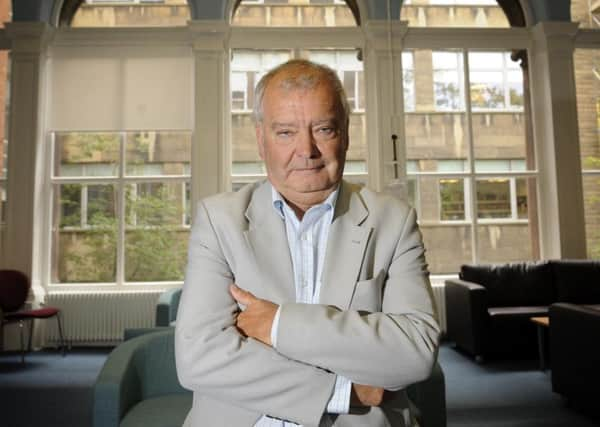Sir Tom Devine: SNP are barrier to '˜blood and soil nationalism'


Professor Sir Tom Devine said there had “hardly been a murmur of complaint” from the Yes movement about the decisive role English voters played in the referendum despite voting “overwhelmingly” against independence, the Herald reported.
Sir Tom dismissed comparisons between the SNP and ethnic-based nationalist movements mushrooming across Europe, claiming that while Anglophobia had been evident in Scotland in the later decades of the twentieth century it had been been in marked decline.
Advertisement
Hide AdAdvertisement
Hide AdHe said the “politics of Westminster not English people” were the chief opponent of Scots nationalists.
Speaking ahead of an event at the Scottish Parliament on the First World War, nationhood and nationalism, Sir Tim said the SNP had shed its ‘claymores and Bannockburn’ image over the past 40 years and that their ideology was based not on “bloodline or national ancestry of voters but whether their home is in Scotland or not”.
Sir Tom said: “There has hardly been a murmur of public complaint from the SNP, or indeed from those of a nationalist persuasion, that English people resident in Scotland, the country’s largest migrant group by far, voted overwhelmingly against independence in 2014 in what became a closer contest than had been expected. That is convincing evidence of the influence of civic nationalism in practice.
“By keeping to its identity of civic nationalism the SNP has helped at least to contain the emergence of xenophobia which could raise its ugly head again in what would be a bitterly fought second independence referendum.
“As the recent if partial Conservative resurgence has shown unionism has become more robust while nationalists will see another referendum as the last chance in a lifetime to to achieve independence.
“The polls are also currently split 50/50 on the question. There can be little doubt that next time the contest will be fought on both sides with even greater passion and commitment than in 2014.”
Sir Tom, who expressed support for independence in the run-up to the 2014 referendum, last year suggested the Scottish Government had just five years to call another referendum. But he said the SNP needed to do “serious and rigorous” work on the economic case for independence to persuade more people to switch to a “yes” vote.
In the past, the historian has expressed support for more devolution, or so-called ‘devo-max’.
